Related Research Articles
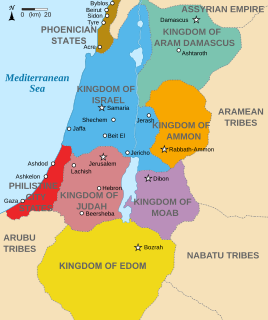
Ammon was an ancient Semitic-speaking nation occupying the east of the Jordan River, between the torrent valleys of Arnon and Jabbok, in present-day Jordan. The chief city of the country was Rabbah or Rabbat Ammon, site of the modern city of Amman, Jordan's capital. Milcom and Molech are named in the Hebrew Bible as the gods of Ammon. The people of this kingdom are called "Children of Ammon" or "Ammonites".

The Book of Chronicles is a book in the Hebrew Bible, found as two books in the Christian Old Testament. Chronicles is the final book of the Hebrew Bible, concluding the third section of the Jewish Tanakh, the Ketuvim ("Writings"). It contains a genealogy starting with Adam and a history of ancient Judah and Israel up to the Edict of Cyrus in 539 BC.

The deuterocanonical books are books and passages considered by the Catholic Church, the Eastern Orthodox Church, the Oriental Orthodox Churches, and the Assyrian Church of the East to be canonical books of the Old Testament, but which Protestant denominations regard as apocrypha. They date from 300 BC to 100 AD, mostly from 200 BC to 70 AD, before the definite separation of the Christian church from Judaism. While the New Testament never directly quotes from or names these books, the apostles most frequently used and quoted the Septuagint, which includes them. Some say there is a correspondence of thought, and others see texts from these books being paraphrased, referred, or alluded to many times in the New Testament, depending in large measure on what is counted as a reference.
Malachi is the traditional author of the Book of Malachi, the last book of the Nevi'im (Prophets) section of the Tanakh. According to the 1897 Easton's Bible Dictionary, it is possible that Malachi is not a proper name, as it simply means "messenger".

Adoniram, the son of Abda, was the tax collector in the United Kingdom of Israel for over forty years, from the late years of King David's reign until the reign of Rehoboam. In the language of the Tanakh, he was "over the tribute", i.e. the levy or forced labor.
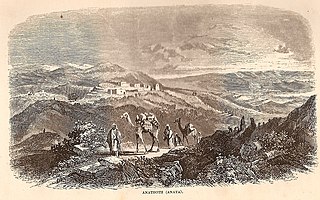
Anathoth is the name of one of the Levitical cities given to "the children of Aaron" in the tribe of Benjamin. Residents were called Antothites or Anetothites.
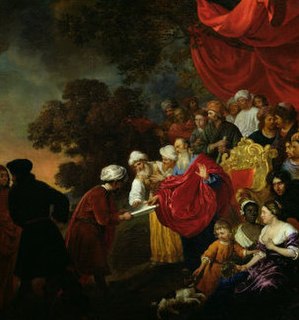
According to the biblical narrative, Zerubbabel was a governor of the Achaemenid Empire's province Yehud Medinata and the grandson of Jeconiah, penultimate king of Judah. Zerubbabel led the first group of Jews, numbering 42,360, who returned from the Babylonian captivity in the first year of Cyrus the Great, the king of the Achaemenid Empire. The date is generally thought to have been between 538 and 520 BC. Zerubbabel also laid the foundation of the Second Temple in Jerusalem soon after.

The terms Hebrews and Hebrew people are mostly considered synonymous with the Semitic-speaking Israelites, especially in the pre-monarchic period when they were still nomadic. However, in some instances it may also be used in a wider sense, referring to the Phoenicians, or to other ancient groups, such as the group known as Shasu of Yhw on the eve of the Bronze Age collapse, which appears 34 times within 32 verses of the Hebrew Bible. It is sometimes regarded as an ethnonym and sometimes not.
Meshullam is a biblical masculine name meaning "Befriended".

The Old Testament is the first section of the two-part Christian biblical canon; the second section is the New Testament. The Old Testament includes the books of the Hebrew Bible (Tanakh) or protocanon, and in various Christian denominations also includes deuterocanonical books. Orthodox Christians, Catholics and Protestants use different canons, which differ with respect to the texts that are included in the Old Testament.
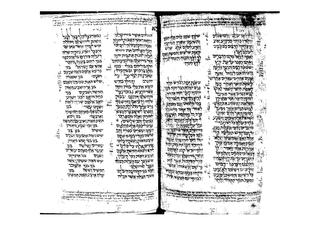
Nehemiah 1 is the first chapter of the Book of Nehemiah in the Old Testament of the Christian Bible, or the 11th chapter of the book of Ezra-Nehemiah in the Hebrew Bible, which treats the book of Ezra and the book of Nehemiah as one book. Jewish tradition states that Ezra is the author of Ezra-Nehemiah as well as the Book of Chronicles, but modern scholars generally accept that a compiler from the 5th century BCE is the final author of these books. This chapter describes Nehemiah's position in the Persian court and his piety.

1 Kings 5 is the fifth chapter of the Books of Kings in the Hebrew Bible or the First Book of Kings in the Old Testament of the Christian Bible. The book is a compilation of various annals recording the acts of the kings of Israel and Judah by a Deuteronomic compiler in the seventh century BCE, with a supplement added in the sixth century BCE. This chapter belongs to the section focusing on the reign of Solomon over the unified kingdom of Judah and Israel. The focus of this chapter is the reign of Solomon, the king of Israel.
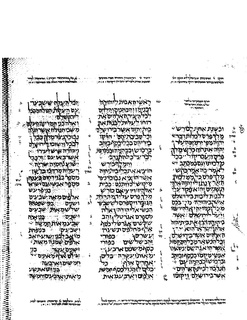
Ezra 5 is the fifth chapter of the Book of Ezra in the Old Testament of the Christian Bible, or the book of Ezra-Nehemiah in the Hebrew Bible, which treats the book of Ezra and book of Nehemiah as one book. Jewish tradition states that Ezra is the author of Ezra-Nehemiah as well as the Book of Chronicles, but modern scholars generally accept that a compiler from the 5th century BCE is the final author of these books. The section comprising chapter 1 to 6 describes the history before the arrival of Ezra to the land of Judah in 468 BCE. This chapter records the contribution of the prophets Haggai and Zechariah to the temple building project and the investigation by Persian officials.

Ezra 7 is the seventh chapter of the Book of Ezra in the Old Testament of the Christian Bible, or the book of Ezra-Nehemiah in the Hebrew Bible, which treats the book of Ezra and book of Nehemiah as one book. Jewish tradition states that Ezra is the author of Ezra-Nehemiah as well as the Book of Chronicles, but modern scholars generally accept that a compiler from the 5th century BCE is the final author of these books. The section comprising chapters 7 to 10 mainly describes the activities of Ezra the scribe and the priest. This chapter focuses on the commission of Ezra by Artaxerxes I of Persia, and the start of his journey from Babylon to Jerusalem.

1 Kings 4 is the fourth chapter of the Books of Kings in the Hebrew Bible or the First Book of Kings in the Old Testament of the Christian Bible. The book is a compilation of various annals recording the acts of the kings of Israel and Judah by a Deuteronomic compiler in the seventh century BCE, with a supplement added in the sixth century BCE. This chapter belongs to the section focusing on the reign of Solomon over the unified kingdom of Judah and Israel. The focus of this chapter is the reign of Solomon, the king of Israel.

1 Kings 11 is the eleventh chapter of the Books of Kings in the Hebrew Bible or the First Book of Kings in the Old Testament of the Christian Bible. The book is a compilation of various annals recording the acts of the kings of Israel and Judah by a Deuteronomic compiler in the seventh century BCE, with a supplement added in the sixth century BCE. This chapter belongs to the section focusing on the reign of Solomon over the unified kingdom of Judah and Israel. The focus of this chapter is Solomon's decline and death.
Obadiah is a masculine given name. It is of Biblical Hebrew origin, and its popularity derives from Obadiah, a prophet in the Hebrew Bible and in the religious traditions of Christianity, Judaism, and Islam.
References
- ↑ International Standard Bible Encyclopedia, (1915) "Abda"
- ↑ Fretz, Mark J. (1992). "Abda". In David Noel Freedman (ed.). Anchor Bible Dictionary, Vol. 1: A-C. New York: Doubleday. p. 8. ISBN 0385193513.
- ↑ Cheyne and Black (1899), Encyclopaedia Biblica, entry for "Abda."
![]() This article incorporates text from a publication now in the public domain : "Abda". Easton's Bible Dictionary . 1897.
This article incorporates text from a publication now in the public domain : "Abda". Easton's Bible Dictionary . 1897.